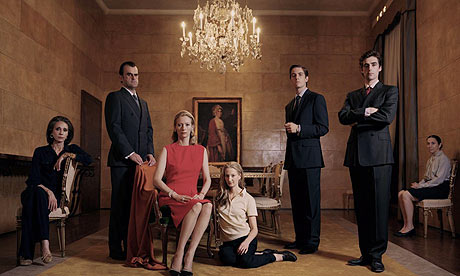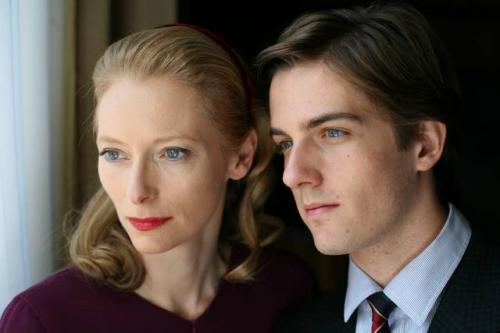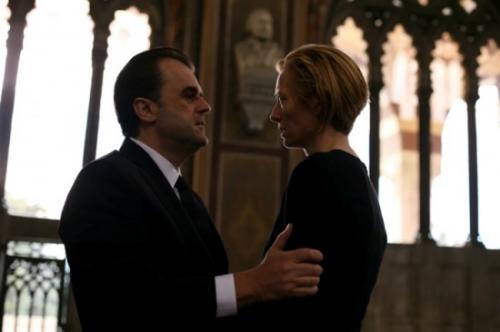I Am Love - Ice queen Tilda melts in passionate Italian melodrama

With her upper-crust poise and aloof beauty, Tilda Swinton looks perfectly at home in the elegant patrician world depicted in Italian director Luca Guadagnino’s remarkable film I Am Love (Io sono l'amore).
When the movie opens, we find her supervising the preparations for a grand formal dinner, a gathering of three generations of the wealthy Recchi family to celebrate the clan’s ageing patriarch. Briskly directing the household staff and liveried waiters as they bustle about the Recchis’ imposing home, Swinton’s regal Emma appears to the manner born.
Emma looks the part, but she doesn’t really belong among this dynasty of Milanese industrialists, as we discover as the film unfolds.
She is in fact an outsider, a Russian woman who has married into the family and assumed its customs and values – at least on the surface.

Barely visible cracks begin to appear on the façade, however, after she encounters young chef Antonio (Edoardo Gabbriellini), who has that day defeated Emma’s son, Edo, in a rowing race – itself an unthinkable occurrence for the ‘unbeatable Recchis’. The blue-collar Antonio has come to offer his blue-blooded rival a cake in consolation and friendship, and when he briefly meets Emma a spark of affinity passes between them.
Nothing happens immediately. The seasons revolve, the Recchi patriarch dies and the family deal with the succession. Edo meanwhile backs Antonio’s new restaurant venture in the hills of Liguria. For Emma, the catalyst for change is her discovery that her daughter, Betta, has ditched her boyfriend and come out as a lesbian. The knowledge that someone in the family can contravene its well-ordered codes thrills and inspires Emma, but her own transgression has tragic consequences.

I Am Love is itself a thrilling and inspiring film. A full-blooded family melodrama, it deals with intense emotions amid a setting of almost operatic grandeur without succumbing to bombast or camp; it portrays upper-class characters (itself unusual) without resorting to caricature; and it harks back to the movies of an earlier era (specifically Visconti and Antonioni) without a trace of post-modern irony or kitsch.
The latest updates, reviews and unmissable series to watch and more!
The film isn’t without flaws – Guadagnino does go rather overboard when it comes to filming a scene of alfresco lovemaking. This class-violating act already smacks of Lady Chatterley’s Lover, but with his rapturous close-ups of naked flesh in the midst of verdant nature, Guadagnino seems to be surrendering to Lawrentian ecstasies that – at least to us in Britain – seem very out of date.
Fortunately, in Swinton Guadagnani has a star who pulls off the film’s grand passions brilliantly. Swinton, who co-produced the film and spent seven years developing the project with the director, is at once imperious and vulnerable, remote and intimate, controlled and combustible. That she does all this while speaking in flawlessly Russian-accented Italian only makes her achievement even more scarily impressive.
On general release from 9th April.
A film critic for over 25 years, Jason admits the job can occasionally be glamorous – sitting on a film festival jury in Portugal; hanging out with Baz Luhrmann at the Chateau Marmont; chatting with Sigourney Weaver about The Archers – but he mostly spends his time in darkened rooms watching films. He’s also written theatre and opera reviews, two guide books on Rome, and competed in a race for Yachting World, whose great wheeze it was to send a seasick film critic to write about his time on the ocean waves. But Jason is happiest on dry land with a classic screwball comedy or Hitchcock thriller.


